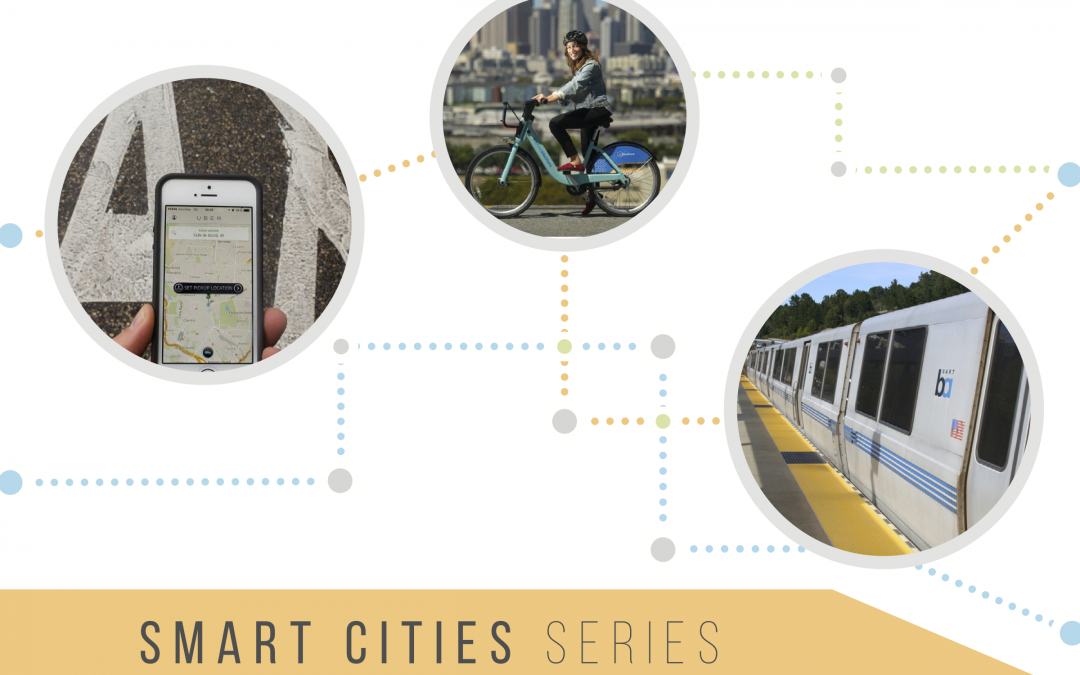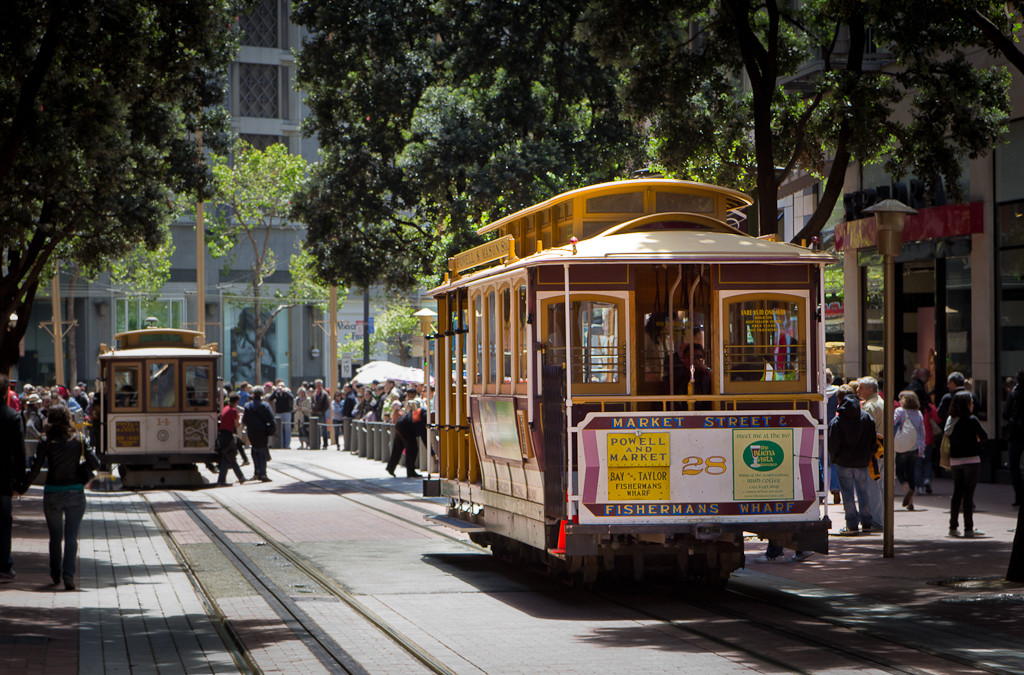
by mattchristensen00 | May 20, 2015 |
By Crissinda Ponder Editor’s note: Each week, one of Bankrate’s personal finance reporters is sharing a new way to save and chronicling the savings journey. This week, I’m reporting on the experience I had as a car pool participant. Read on to see what happened. If you’re like me, you’re probably not a fan of the daily work commute drama: the accidents that attract slow-driving rubberneckers and make you late to the office, the psychos swerving from lane to lane, the people feeding their face or applying makeup. But having a co-worker along for the ride makes things a little less insufferable. Ready to save some money (and potentially retain your sanity)? Maybe it’s time to try carpooling. To read more about the Savings Challenge, click...

by mattchristensen00 | May 5, 2015 |
To view and download the PDF summary, click here. By Susan Shaheen (UC Berkeley’s TSRC), Matt Christensen (UC Berkeley’s TSRC), and Gerry Tierney (Perkins + Will) Smart Cities Series This workshop, held on Wednesday, February 18, 2015, was a continuation of the Urban Mobility series held by AGRION, Perkins+Will, and UC Berkeley’s Transportation Sustainability Research Center (TSRC). The preceding workshops included: Evolving Urban Mobility: A New Regulatory Environment (March 27, 2014) Urban Mobility Workshop: Public-Private Collaboration and Data Sharing (June 19, 2014) Public/Private Urban Mobility Data Sharing: Evaluating Security and Privacy Solutions (November 13, 2014). In these previous workshops it was identified that all socio-demographic groups, including low-income and otherwise disadvantaged communities, must be accounted for in developing smarter, safer and more efficient cities. This workshop was designed to address how innovation and transportation development can be framed and adjusted to be more inclusive of all people in an urban environment. Workshop Introduction Gerry Tierney began Workshop #4 by defining the core of this workshop—namely, that we must not develop innovations and plan transportation networks for “winners and losers;” rather, we should plan for a new, inclusive mobility environment for all communities and socio-demographic groups. Professor Susan Shaheen then provided the context of the workshop in relation to the evolution of the previous events. She highlighted that the digital and income divide is becoming increasingly prevalent as the smartphone and other technologies permeate into our transportation networks, and we must remember that the public good must come first so that social and environmental goals remain the framework for present and future urban mobility systems. Panelist Presentations Tilly Chang, Exec....

by mattchristensen00 | Apr 17, 2015 |
Over the last year, Agrion, Perkins + Will, and UC Berkeley’s Transportation Sustainability Research Center have led a series of workshops regarding a range of urban mobility issues. Each of these workshops have been summarized and provided in PDF form below. 1. Evolving Urban Mobility: A New Regulatory Environment (March 27, 2014) 2. Urban Mobility Workshop: Public-Private Collaboration and Data Sharing (June 19, 2014) 3. Public/Private Urban Mobility Data Sharing: Evaluating Security and Privacy Solutions (November 13, 2014) 4. Crossing the Digital and Income Divide: Making Mobility Innovations Accessible to All (February 18,...
by mattchristensen00 | Apr 8, 2015 |
By Laura Nelson A bright blue bus pulled to the curb in the busy Financial District, where two men in plaid shirts and backpacks were focused on their phones. Josh Pincus, 21, stepped aboard, greeted the driver and settled onto a padded bench at the rear, beneath a wall of distressed wood. An employee tended a small counter offering $7 juice and high-end coffee. The shuttle was roomy, cool, quiet and almost empty, with just five other, youngish passengers hunched over phones and laptops. “I don’t like feeling crowded,” Pincus said, as he scrolled through email using the free Wi-Fi. Out the windows, he could see standing passengers swaying and jostling on a passing city bus. “Muni just isn’t convenient, or very pleasant.” Pincus’ ride, operated by Leap, is one of several start-ups providing an alternative to San Francisco’s aging, crowded bus network. The company and its main competitor, Chariot, run short, peak-hour shuttle routes between the Financial District and the Marina, a pricey neighborhood popular with young entrepreneurs and investment bankers who complain of unreliable and infrequent Muni service. The start-ups, both less than a year old, have drawn comparisons to Google’s sleek buses, which sparked protests last year among activists who said the shuttles were exacerbating gentrification by connecting higher-income commuters to neighborhoods with otherwise poor transit service, driving up rents. Some fear Leap and Chariot could further stratify San Francisco commuting options between rich and poor — and reduce pressure to improve the public transportation network. To read the full article, click...

by mattchristensen00 | Mar 17, 2015 |
By Susan Shaheen, PhD, and Nelson Chan Shared-use mobility includes carsharing, personal vehicle sharing (or peer-to-peer (P2P) carsharing), bikesharing, scooter sharing, shuttle services, ridesharing, and on-demand ride services. It can also include commercial delivery vehicles providing flexible goods movement. Shared-use mobility has had a transformative impact on many global cities by enhancing transportation accessibility while simultaneously reducing ownership of personal automobiles. In the context of carsharing and bikesharing, vehicles and bicycles are typically unattended, concentrated in a network of locations where the transaction of checking out a vehicle or bicycles is facilitated through information technology (IT) and other technological innovations. Usually, carsharing and bikesharing operators are responsible for the cost of maintenance, storage, parking, and insurance/fuel (if applicable). In the context of classic ridesharing (carpooling and vanpooling) and on-demand ride services, such as transportation network companies (TNCs), many of these providers employ IT to facilitate the matching of riders and drivers for trip making. To download the full report, click here....





